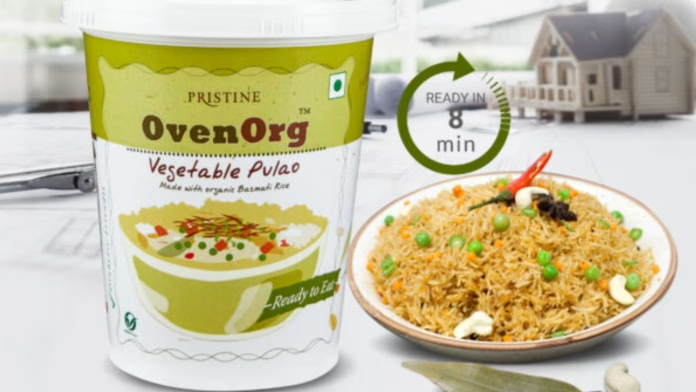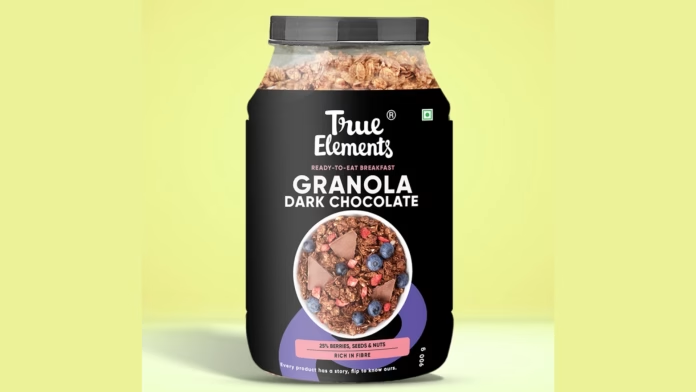Eating a wholesome and nutritious meal is essential for maintaining a healthy lifestyle. However, in today’s fast-paced world, people often have busy schedules and may not have the time to prepare meals from scratch. Ready-to-eat meals have become a popular option for those who want to enjoy a tasty and nutritious meal without spending too much time in the kitchen. In this article, we will discuss OvenOrg’s ready-to-eat vegetable pulao, made with organic basmati rice, and why it is an excellent choice for those looking for a quick and delicious meal.
Benefits of Choosing Organic Food Products
Organic food products have become increasingly popular in recent years, as people have become more health-conscious and environmentally aware. Organic food is grown without the use of synthetic fertilizers, pesticides, or genetically modified organisms (GMOs). This means that organic food is free from harmful chemicals, which can have a negative impact on human health.
In addition to the health benefits, choosing organic food products also helps to support sustainable farming practices. Organic farming practices focus on using natural methods to cultivate crops, which can help to preserve soil health, reduce pollution, and promote biodiversity.
OvenOrg’s Ready to Eat Vegetable Pulao:
OvenOrg’s ready-to-eat vegetable pulao is made with organic basmati rice and a variety of vegetables and spices. The product is ready to eat straight out of the package and can be heated in the microwave or on the stove. This makes it a convenient and hassle-free option for those who are short on time.
The product is gluten-free and contains no preservatives or artificial colors. It is also vegan-friendly, making it an excellent choice for those following a plant-based diet.
Ingredients Used in OvenOrg’s Vegetable Pulao:
OvenOrg’s Vegetable Pulao is made with organic basmati rice, a combination of vegetables, and a blend of spices. The vegetables used in this dish include carrots, peas, beans, cauliflower, and onion. The spices used include cumin, coriander, cinnamon, and cardamom. The use of organic basmati rice ensures that the dish is healthy and free of harmful chemicals.
Health Benefits of the Ingredients in OvenOrg’s Vegetable Pulao:
1. Organic Basmati Rice:
Organic basmati rice is a healthier option compared to regular rice. It has a low glycemic index, which means that it does not cause a rapid spike in blood sugar levels. This makes it an ideal choice for people with diabetes. It is also rich in fiber, which aids in digestion and helps maintain a healthy gut. Additionally, organic basmati rice is free from harmful chemicals and pesticides, which makes it a safe and healthy choice.
2. Carrots:
Carrots are packed with nutrients and are an excellent source of beta-carotene, vitamin A, and fiber. Beta-carotene is converted to vitamin A in the body, which is essential for healthy vision, skin, and immune function. The fiber in carrots helps maintain a healthy gut and aids in digestion.
3. Peas:
Peas are a good source of plant-based protein and are rich in vitamins and minerals such as vitamin K, folate, and iron. They also contain fiber, which helps keep you full and aids in digestion.
4. Beans:
Beans are a great source of plant-based protein and are rich in vitamins and minerals such as iron, potassium, and folate. They are also high in fiber, which helps maintain healthy digestion and keeps you feeling full for longer.
5. Cauliflower:
Cauliflower is a low-calorie vegetable that is packed with nutrients. It is an excellent source of vitamin C, which is essential for a healthy immune system. It is also rich in fiber, which aids in digestion and helps maintain a healthy gut.
6. Onions:
Onions are packed with antioxidants, which help protect the body from harmful free radicals. They are also a good source of vitamin C, which is essential for healthy skin and immune function. Onions also contain fiber, which helps maintain a healthy gut and aids in digestion.
7. Cumin:
Cumin is a spice that is rich in antioxidants and is known for its anti-inflammatory properties. It also aids in digestion and helps alleviate symptoms of digestive issues such as bloating and constipation.
8. Coriander:
Coriander is rich in antioxidants and is known for its anti-inflammatory properties. It also aids in digestion and helps alleviate symptoms of digestive issues such as bloating and constipation.
9. Cinnamon:
Cinnamon is a spice that is known for its anti-inflammatory properties. It also helps regulate blood sugar levels and aids in digestion.
10. Cardamom:
Cardamom is a spice that is rich in antioxidants and is known for its anti-inflammatory properties. It also aids in digestion and helps alleviate symptoms of digestive issues such as bloating and constipation.
How to Enjoy OvenOrg’s Vegetable Pulao
OvenOrg’s Vegetable Pulao is ready to eat and can be enjoyed as a quick and easy meal. To prepare, simply heat the contents of the packet in a microwave or on a stovetop for a few minutes. Once heated, the dish is ready to be enjoyed.
OvenOrg’s Vegetable Pulao can be enjoyed as a standalone meal or can be paired with other dishes such as curries or salads. It is a perfect option for those who are short on time and need a quick and healthy meal.
OvenOrg’s Ready to eat Vegetable Pulao is an excellent option for anyone looking for a wholesome and delicious meal. Made with organic basmati rice and a variety of vegetables, this pulao is not only tasty but also nutritious.
With its convenient packaging, it is easy to prepare and can be enjoyed at home, at work, or on-the-go. Additionally, the fact that it is organic ensures that you are consuming food that is free from harmful pesticides and chemicals. So, if you’re looking for a quick and healthy meal option, OvenOrg’s Vegetable Pulao is definitely worth trying.










